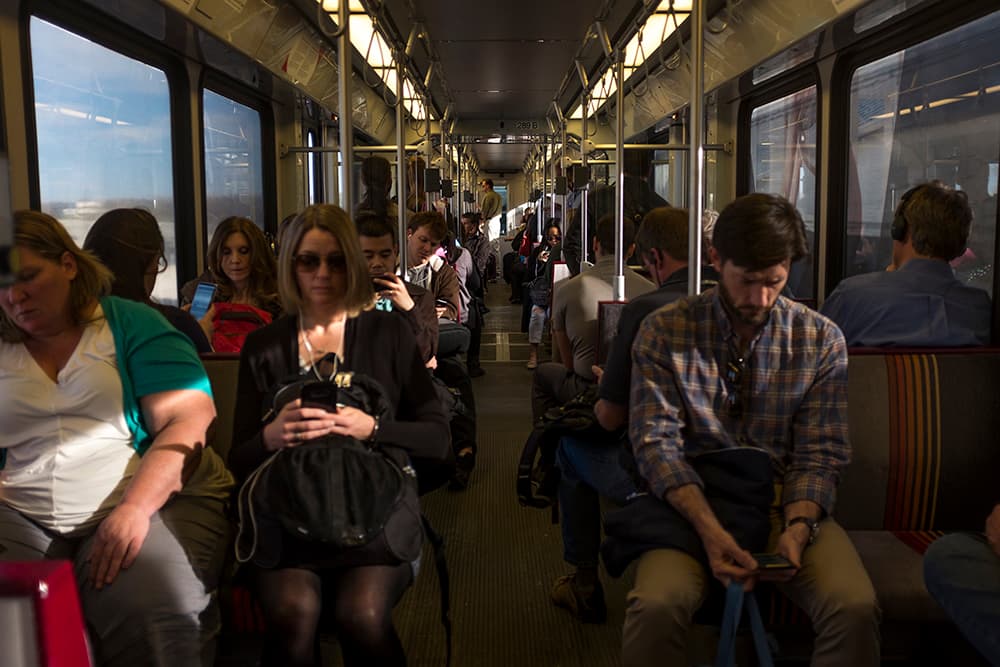Long-considered changes are coming to RTD fares and pass programs in 2019, now that the board of directors has given its stamp of approval.
In 2019, local bus fare will rise from $2.60 to $3, regional bus fare will rise from $4.50 to $5.25, and the cost of taking the A Line to the airport will increase from $9 to $10.50. RTD will increase the discount for riders between 6 and 19 years old to 70 percent, and add a new low-income fare program that gives a 40 percent discount to households at or below 185 percent of the federal poverty level. The senior discount for all fares will remain at 50 percent, which means seniors' costs will rise a bit, too.
"We did discuss that and we determined that a 50 percent discount is appropriate and is consistent with what is done across the country and is consistent with federal regulations," RTD assistant general manager of communications Scott Reed said.
A Title VI equity analysis of all changes found no conflicts with the RTD's Disparate Impact and Disproportionate Burden Policy, according to a press release. The policy is meant to "avoid and mitigate disproportionate impacts absorbed by minority and low-income populations with respect to fare changes," it says.
Other elements of the plan approved Tuesday night include a new three-hour pass that replaces the three-hour one-way transfer system in place now and the discontinuation of the ValuPass, which RTD recommends replacing with 12 monthly passes. The 10-ride ticket books, MyRide smart cards, day passes, monthly passes and FlexPass are all sticking around. The EcoPass, Neighborhood EcoPass and CollegePass will stick around, too, and will be priced by number of rides taken.
Implementation of some changes will take a little while. The process starts in January, but RTD expects that the low-income fare passes won't be available until July.
The board's approval marks the end of an 18-month-long process of crafting and reviewing fares and pass programs. A 26-member working group representing a variety of regional interest groups — including Mile High Connects, Denver Public Schools, Denver Regional Mobility and Access Council and the now-defunct Transit Alliance, to name a few — held 11 meetings between March 2017 and March 2018.
“The main challenge is that everyone wants to give everyone a discount, but you can’t give everyone a discount without missing your revenue target," RTD’s transit equity manager Michael Washington told Denverite at the time.
RTD reviews its fares every three years, so those changes were due, but this was the first time in a long time the agency put a working group behind the effort. The working group and narrowed down a handful of options, with financial modeling along the way, to arrive at this plan. There were eight public meetings held throughout RTD's eight-county area and one telephone town hall meeting. You can look at the meeting agendas, modeling results and other options here.
"My board colleagues and I appreciate and applaud the deliberative process that was undertaken, as well as the tremendous effort by staff, the pass program working group and our stakeholders," RTD Board Chair Doug Tisdale said in a press release. "All of us understand and have communicated to all interested parties the diverse viewpoints of our constituents, while striving to collaborate and cooperate with each other. We most definitely appreciate the signal importance of this decision."
For more on this process:
Big changes ahead for RTD’s pass programs. Wait, what are the pass programs? (June 19, 2017)
RTD is overhauling its pass plans right now, and here’s what’s on the table (Jan. 10, 2018)
Recommendation in front of RTD staff would give big discounts to youth and low-income riders (March 12, 2018)
Let's talk about fares (RTD)












